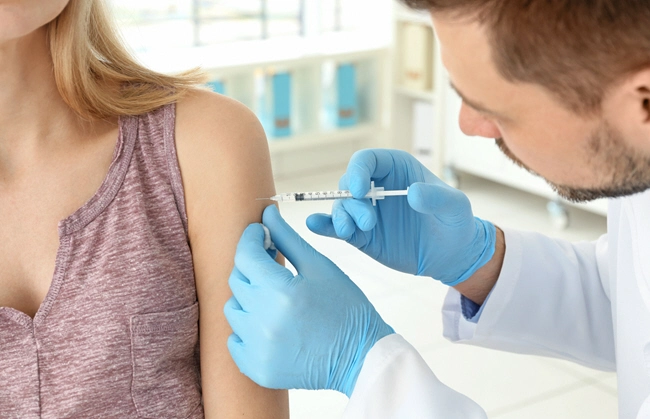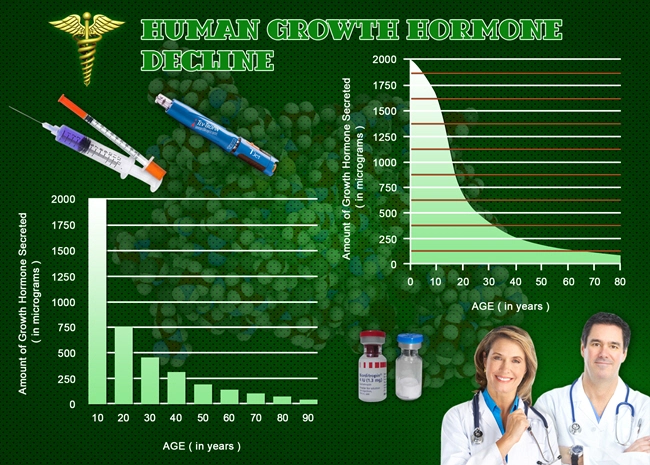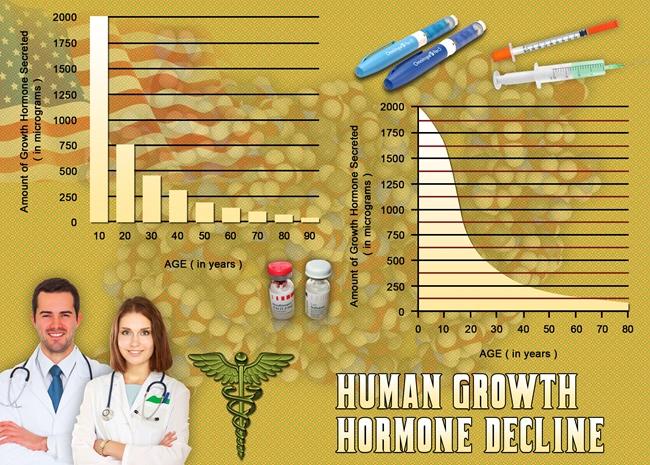
Prostate cancer remains a significant health concern among American males, necessitating continual advancements in therapeutic strategies. Among the emerging treatments, peptide therapies have garnered considerable attention due to their potential to target cancer cells with high precision. This article delves into the innovations in peptide therapies specifically focused on prostate cancer, offering insights into their mechanisms, benefits, and future prospects.
Understanding Peptide Therapies
Peptides, short chains of amino acids, have unique properties that make them ideal for medical applications. In the context of prostate cancer, peptides can be designed to target specific receptors or molecules overexpressed on cancer cells. This targeted approach minimizes damage to healthy tissues, a common drawback of traditional chemotherapy and radiation therapies.
Mechanisms of Action
The efficacy of peptide therapies in treating prostate cancer lies in their ability to act as ligands for receptors on cancer cells. For instance, bombesin-like peptides have shown promise in binding to gastrin-releasing peptide receptors (GRPR), which are often overexpressed in prostate cancer cells. Once bound, these peptides can deliver cytotoxic agents directly to the tumor, enhancing the therapeutic index and reducing systemic toxicity.
Moreover, peptides can be engineered to stimulate the immune system. By acting as antigens, they can trigger an immune response that specifically targets cancer cells. This immunotherapeutic approach has the potential to not only destroy existing tumors but also prevent recurrence by training the immune system to recognize and eliminate cancer cells.
Clinical Advances and Trials
Recent clinical trials have underscored the potential of peptide therapies in managing prostate cancer. For example, a phase II trial evaluating the efficacy of a radiolabeled bombesin analog demonstrated significant tumor uptake and promising therapeutic outcomes in patients with advanced prostate cancer. These findings suggest that peptide receptor radionuclide therapy (PRRT) could become a cornerstone in the treatment arsenal for prostate cancer.
Additionally, the development of peptide vaccines has shown encouraging results. Vaccines such as sipuleucel-T, which uses a peptide antigen to stimulate an immune response against prostate cancer cells, have received FDA approval and are being used clinically. Ongoing research aims to refine these vaccines to improve their efficacy and broaden their applicability.
Challenges and Future Directions
Despite the promising advancements, peptide therapies face several challenges. One significant hurdle is the rapid degradation of peptides in the body, which can limit their bioavailability and efficacy. To overcome this, researchers are exploring peptide modifications, such as the incorporation of D-amino acids or cyclization, to enhance stability and prolong therapeutic effects.
Another challenge is the heterogeneity of prostate cancer, which can lead to variability in receptor expression among patients. Personalized medicine approaches, utilizing advanced imaging and molecular profiling, are being developed to tailor peptide therapies to individual patients, thereby maximizing their effectiveness.
Looking ahead, the integration of peptide therapies with other treatment modalities, such as immunotherapy and targeted therapies, holds great promise. Combinatorial approaches could enhance the overall therapeutic impact, offering a more comprehensive strategy to combat prostate cancer.
Conclusion
Innovations in peptide therapies represent a beacon of hope for American males battling prostate cancer. By harnessing the specificity and versatility of peptides, these therapies offer a targeted approach that could revolutionize cancer treatment. As research progresses and clinical trials continue to yield positive results, peptide therapies are poised to become a vital component in the fight against prostate cancer, ultimately improving outcomes and quality of life for patients.
Contact Us Today For A Free Consultation
Dear Patient,
Once you have completing the above contact form, for security purposes and confirmation, please confirm your information by calling us.
Please call now: 1-800-380-5339.
Welcoming You To Our Clinic, Professor Tom Henderson.

- Peptide-renovation: A New Dawn Embraces the Medical Science Sphere [Last Updated On: March 2nd, 2025] [Originally Added On: March 2nd, 2025]
- Peptides and Epigenetics: Key Roles in American Men's Health and Disease Prevention [Last Updated On: March 3rd, 2025] [Originally Added On: March 3rd, 2025]
- Exploring the Role of Peptides in Diabetes Management: Therapeutic Potential and Future Directions [Last Updated On: March 3rd, 2025] [Originally Added On: March 3rd, 2025]
- Peptides as Potential Treatments for Neurological Disorders [Last Updated On: March 4th, 2025] [Originally Added On: March 4th, 2025]
- Exploring Peptide-Based Immunotherapy in Men's Health: Cancer and Autoimmune Diseases [Last Updated On: March 5th, 2025] [Originally Added On: March 5th, 2025]
- Emerging Role of Peptides in Enhancing Men's Health and Treating Chronic Diseases [Last Updated On: March 6th, 2025] [Originally Added On: March 6th, 2025]
- Unlocking the Power of Antimicrobial Peptides in Men's Health and Beyond [Last Updated On: March 7th, 2025] [Originally Added On: March 7th, 2025]
- Peptides in Male Skincare: Enhancing Skin Health with Science and Simplicity [Last Updated On: March 8th, 2025] [Originally Added On: March 8th, 2025]
- Revolutionizing Men's Health: The Power of Biomimetic Peptides in Regenerative Medicine [Last Updated On: March 9th, 2025] [Originally Added On: March 9th, 2025]
- Unveiling the Anti-Aging Secrets: The Role of Peptides in Modern Medicine [Last Updated On: March 11th, 2025] [Originally Added On: March 11th, 2025]
- Advancements in Therapeutic Proteins and Peptides: A New Frontier for American Male Health [Last Updated On: March 12th, 2025] [Originally Added On: March 12th, 2025]
- Unlocking the Potential of Peptides in Revolutionizing Allergy Treatment for American Males [Last Updated On: March 13th, 2025] [Originally Added On: March 13th, 2025]
- Revolutionizing Health: The Role of Peptides in Precision Medicine for American Males [Last Updated On: March 13th, 2025] [Originally Added On: March 13th, 2025]
- Unlocking the Power of Peptides in Wound Healing and Tissue Repair for American Males [Last Updated On: March 15th, 2025] [Originally Added On: March 15th, 2025]
- Peptides Revolutionizing Eye Health Treatments for American Males [Last Updated On: March 18th, 2025] [Originally Added On: March 18th, 2025]
- Peptides: A Promising Solution for Metabolic Disorders in American Males [Last Updated On: March 18th, 2025] [Originally Added On: March 18th, 2025]
- Peptides: A New Frontier in Managing Respiratory Health for American Males [Last Updated On: March 19th, 2025] [Originally Added On: March 19th, 2025]
- Peptides and Gene Therapy: Revolutionizing American Male Health Treatments [Last Updated On: March 19th, 2025] [Originally Added On: March 19th, 2025]
- Peptides Revolutionize Diagnosis and Drug Delivery for American Men's Health [Last Updated On: March 19th, 2025] [Originally Added On: March 19th, 2025]
- Peptide-Based Therapies: A New Frontier in Obesity Management for American Males [Last Updated On: March 20th, 2025] [Originally Added On: March 20th, 2025]
- Peptides: A New Frontier in Managing Infectious Diseases for American Males [Last Updated On: March 21st, 2025] [Originally Added On: March 21st, 2025]
- Peptides in Veterinary Medicine: Enhancing Male Animal Health in America [Last Updated On: March 21st, 2025] [Originally Added On: March 21st, 2025]
- Peptide Therapeutics: Revolutionizing Chronic Disease Management in American Men's Health [Last Updated On: March 21st, 2025] [Originally Added On: March 21st, 2025]
- Peptide Vaccines: Progress, Challenges, and Impact on American Males' Health [Last Updated On: March 21st, 2025] [Originally Added On: March 21st, 2025]
- Peptides and Stem Cells: Revolutionizing Men's Health Treatments in America [Last Updated On: March 21st, 2025] [Originally Added On: March 21st, 2025]
- Peptide Biomarkers: Revolutionizing Disease Detection for American Males [Last Updated On: March 22nd, 2025] [Originally Added On: March 22nd, 2025]
- Peptides in Endocrinology: Revolutionizing Male Health and Performance [Last Updated On: March 22nd, 2025] [Originally Added On: March 22nd, 2025]
- Peptides in Men's Skincare: Enhancing Health and Appearance [Last Updated On: March 22nd, 2025] [Originally Added On: March 22nd, 2025]
- Peptides: Enhancing Gut Health and Wellness in American Males [Last Updated On: March 23rd, 2025] [Originally Added On: March 23rd, 2025]
- Peptides Revolutionizing Neuropathic Pain Management for American Males [Last Updated On: March 24th, 2025] [Originally Added On: March 24th, 2025]
- Peptides: Unlocking Health and Anti-Aging Benefits for American Males [Last Updated On: March 24th, 2025] [Originally Added On: March 24th, 2025]
- Peptide-Based HIV Vaccines: Progress, Promise, and Challenges for American Males [Last Updated On: March 24th, 2025] [Originally Added On: March 24th, 2025]
- Peptides Revolutionize Epilepsy Management for American Males: A New Hope [Last Updated On: March 24th, 2025] [Originally Added On: March 24th, 2025]
- Peptide Radiopharmaceuticals: Revolutionizing Cancer Imaging and Therapy for American Males [Last Updated On: March 24th, 2025] [Originally Added On: March 24th, 2025]
- Peptides: A Promising Solution for Male Hair Loss Treatment [Last Updated On: March 24th, 2025] [Originally Added On: March 24th, 2025]
- Peptide Therapies: A New Frontier in Treating Rheumatic Diseases for American Males [Last Updated On: March 24th, 2025] [Originally Added On: March 24th, 2025]
- Bioactive Peptides: Enhancing Health and Preventing Disease in American Men [Last Updated On: March 24th, 2025] [Originally Added On: March 24th, 2025]
- Peptide Bioinformatics: Revolutionizing Precision Medicine for American Males [Last Updated On: March 24th, 2025] [Originally Added On: March 24th, 2025]
- Peptide Therapy: A Promising Treatment for Hematological Conditions in American Males [Last Updated On: March 24th, 2025] [Originally Added On: March 24th, 2025]
- Peptides in Sports Medicine: Enhancing Performance and Recovery for American Male Athletes [Last Updated On: March 25th, 2025] [Originally Added On: March 25th, 2025]
- Peptides: Revolutionizing Men's Health with Targeted Therapies [Last Updated On: March 25th, 2025] [Originally Added On: March 25th, 2025]
- Peptides: A New Frontier in Combating Antibiotic Resistance for American Males [Last Updated On: March 25th, 2025] [Originally Added On: March 25th, 2025]
- Peptide-Based Biosensors: Revolutionizing Health Monitoring for American Males [Last Updated On: March 25th, 2025] [Originally Added On: March 25th, 2025]
- Peptides: A New Frontier in Mental Health for American Men [Last Updated On: March 25th, 2025] [Originally Added On: March 25th, 2025]
- Peptides: A New Hope for Treating Neurodegenerative Diseases in American Men [Last Updated On: March 25th, 2025] [Originally Added On: March 25th, 2025]
- Peptide Therapies: Enhancing Bone Health in American Males [Last Updated On: March 26th, 2025] [Originally Added On: March 26th, 2025]
- Peptide Therapies Revolutionizing Transplant Medicine: Enhancing Success and Reducing Rejection [Last Updated On: March 26th, 2025] [Originally Added On: March 26th, 2025]
- Topic Peptides: A Promising Therapy for Gastrointestinal Disorders in American Males [Last Updated On: March 26th, 2025] [Originally Added On: March 26th, 2025]
- Peptide Therapeutics: Targeted Hope for American Males with Rare Diseases [Last Updated On: March 26th, 2025] [Originally Added On: March 26th, 2025]
- Peptide Drugs in Pediatrics: Targeted Therapies for American Males' Children [Last Updated On: March 26th, 2025] [Originally Added On: March 26th, 2025]
- Peptides Revolutionizing Dental Care for American Males: Healing, Implants, and Pain Management [Last Updated On: March 27th, 2025] [Originally Added On: March 27th, 2025]
- Peptides: Enhancing Male Fertility Through Hormonal Balance and Sperm Quality [Last Updated On: March 27th, 2025] [Originally Added On: March 27th, 2025]
- Stem Cells and Peptides: Enhancing Health and Longevity for American Men [Last Updated On: March 27th, 2025] [Originally Added On: March 27th, 2025]
- Peptides Revolutionize Nanomedicine: Enhancing Health Outcomes for American Men [Last Updated On: March 27th, 2025] [Originally Added On: March 27th, 2025]
- Peptides: A New Frontier in Cardiovascular Health for American Men [Last Updated On: March 27th, 2025] [Originally Added On: March 27th, 2025]
- Peptides and Liver Health: Insights for American Males on Regeneration and Inflammation [Last Updated On: March 27th, 2025] [Originally Added On: March 27th, 2025]
- Peptides Revolutionize Toxicology: Diagnosis and Treatment Advances for American Males [Last Updated On: March 28th, 2025] [Originally Added On: March 28th, 2025]
- Peptide-Based Anti-Venom Therapy: A Promising Future for American Males [Last Updated On: March 28th, 2025] [Originally Added On: March 28th, 2025]
- Peptide-Polymer Composites: Revolutionizing Personalized Medicine for American Males [Last Updated On: March 28th, 2025] [Originally Added On: March 28th, 2025]
- Peptides: A Targeted Approach to Managing Inflammation in American Males [Last Updated On: March 28th, 2025] [Originally Added On: March 28th, 2025]
- Peptides: A Promising Frontier in Stroke Treatment for American Males [Last Updated On: March 29th, 2025] [Originally Added On: March 29th, 2025]
- Peptides Revolutionizing Trauma Care for American Males: Healing and Psychological Recovery [Last Updated On: March 29th, 2025] [Originally Added On: March 29th, 2025]
- Peptide-Enhanced Photodynamic Therapy: Advances and Applications for American Males [Last Updated On: March 30th, 2025] [Originally Added On: March 30th, 2025]
- Peptides as Cell-Penetrating Agents: Revolutionizing Men's Health Treatments [Last Updated On: March 30th, 2025] [Originally Added On: March 30th, 2025]
- Peptide Vaccines in Veterinary Medicine: Applications, Benefits, and Future Prospects [Last Updated On: March 30th, 2025] [Originally Added On: March 30th, 2025]
- Peptides in Acute Kidney Injury: Inflammation Control and Kidney Function Enhancement [Last Updated On: March 31st, 2025] [Originally Added On: March 31st, 2025]
- Peptide Drug Conjugates: Revolutionizing Men's Health with Targeted Therapy [Last Updated On: April 1st, 2025] [Originally Added On: April 1st, 2025]
- Peptides in Burn Care: Enhancing Healing and Scar Management for American Males [Last Updated On: April 2nd, 2025] [Originally Added On: April 2nd, 2025]
- Peptides in Substance Abuse Treatment: Insights for American Males [Last Updated On: April 3rd, 2025] [Originally Added On: April 3rd, 2025]
- Peptides: A Promising Frontier in Osteoporosis Treatment for Aging Populations [Last Updated On: April 5th, 2025] [Originally Added On: April 5th, 2025]
- Peptide Therapies: A Promising Approach to Managing Autoimmune Diseases in American Men [Last Updated On: April 7th, 2025] [Originally Added On: April 7th, 2025]
- Peptides: A Promising Treatment for Ocular Infections in American Males [Last Updated On: April 7th, 2025] [Originally Added On: April 7th, 2025]
- Peptides in Geriatric Medicine: Enhancing Health and Vitality in Aging American Males [Last Updated On: April 10th, 2025] [Originally Added On: April 10th, 2025]









